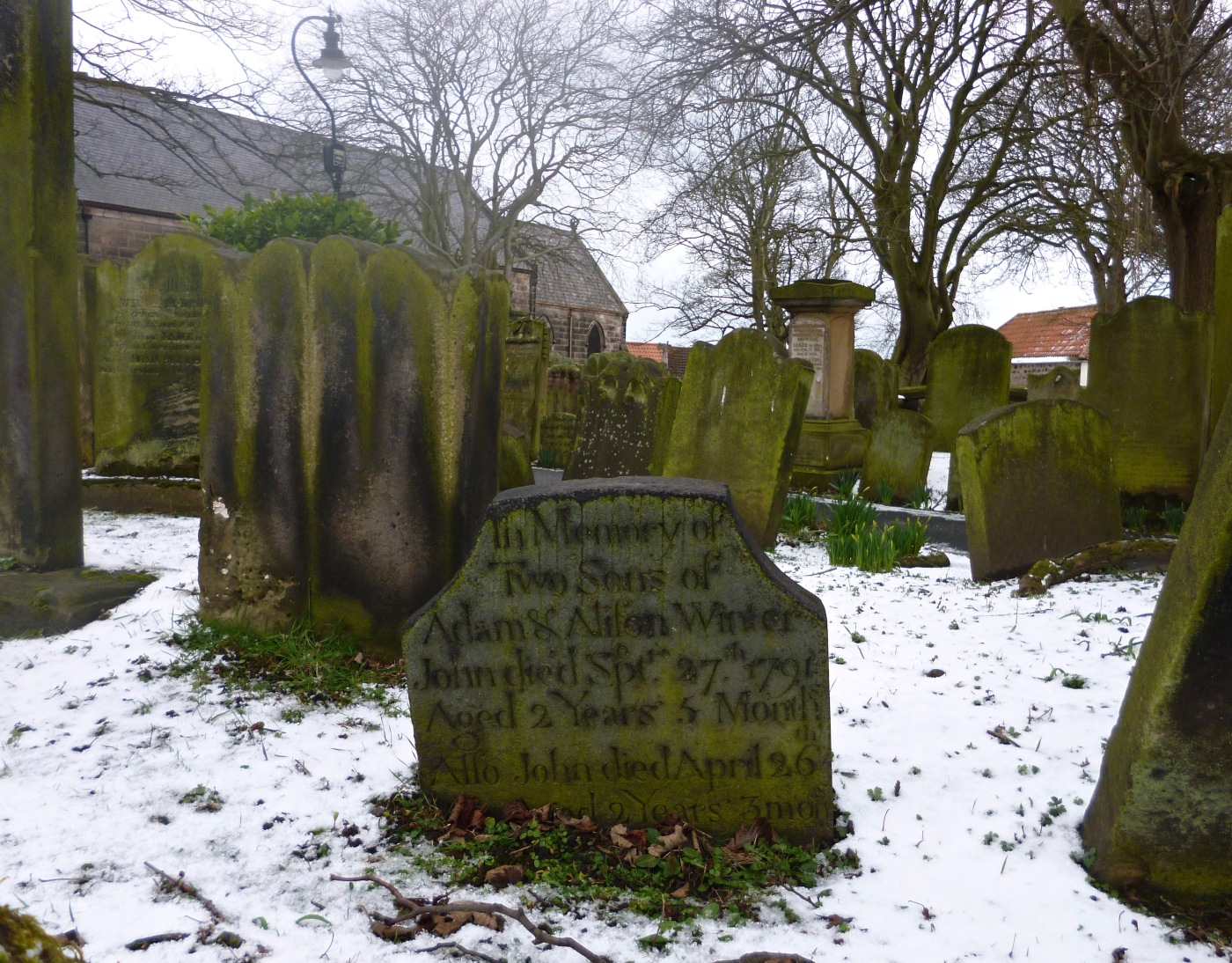Among many gravestones weathered to illegibility the inscription on this small stone stands out clearly. Walking past Tweedmouth churchyard on a snowy afternoon last week, the flowing lettering caught my eye as I glanced over the low wall.
The stone records the short lives of ‘two sons of Adam & Alison Winter’, John who died in September 1791 at the age of 2 years and 5 months and his brother, also called John who died at the age of 2 years and three months. (The year of the second death is hidden behind grass and leaves). The careful record of the exact ages of the two Johns hints at the depths of long ago sadness. A month more or less carries weight in such short lives.
Alison and Adam Winter will have known only too well that their sons’ live might be short ones. Life expectancy had risen during the eighteenth century, at least partly due to agricultural improvements and more reliable food supplies, but the first few years of life remained fraught with danger, as they still are for children in some countries around the world. At the end of the 18th century around 15% of children born in England didn’t reach their fifth birthday. Average life expectancy at birth was less than 40 years but that doesn’t mean no one lived into old age. Another stone in Tweedmouth churchyard records the life of Thomas Bell of Spittal who died in 1791 at the age of 105 years. In a time before birth certificates there may have been some uncertainty about Mr Bell’s exact age. A year more or less doesn’t carry so much weight in such a long life.


March 23, 2018 at 3:02 pm
Poor parents.
LikeLiked by 1 person
March 24, 2018 at 4:17 am
A memorial to unimaginable heartache. I love the human drama of old graveyards, the wide range of backstories and family tributes.
LikeLiked by 1 person
March 25, 2018 at 5:52 am
An wonderfully composed photograph and a heart-wrenching story.
LikeLiked by 1 person